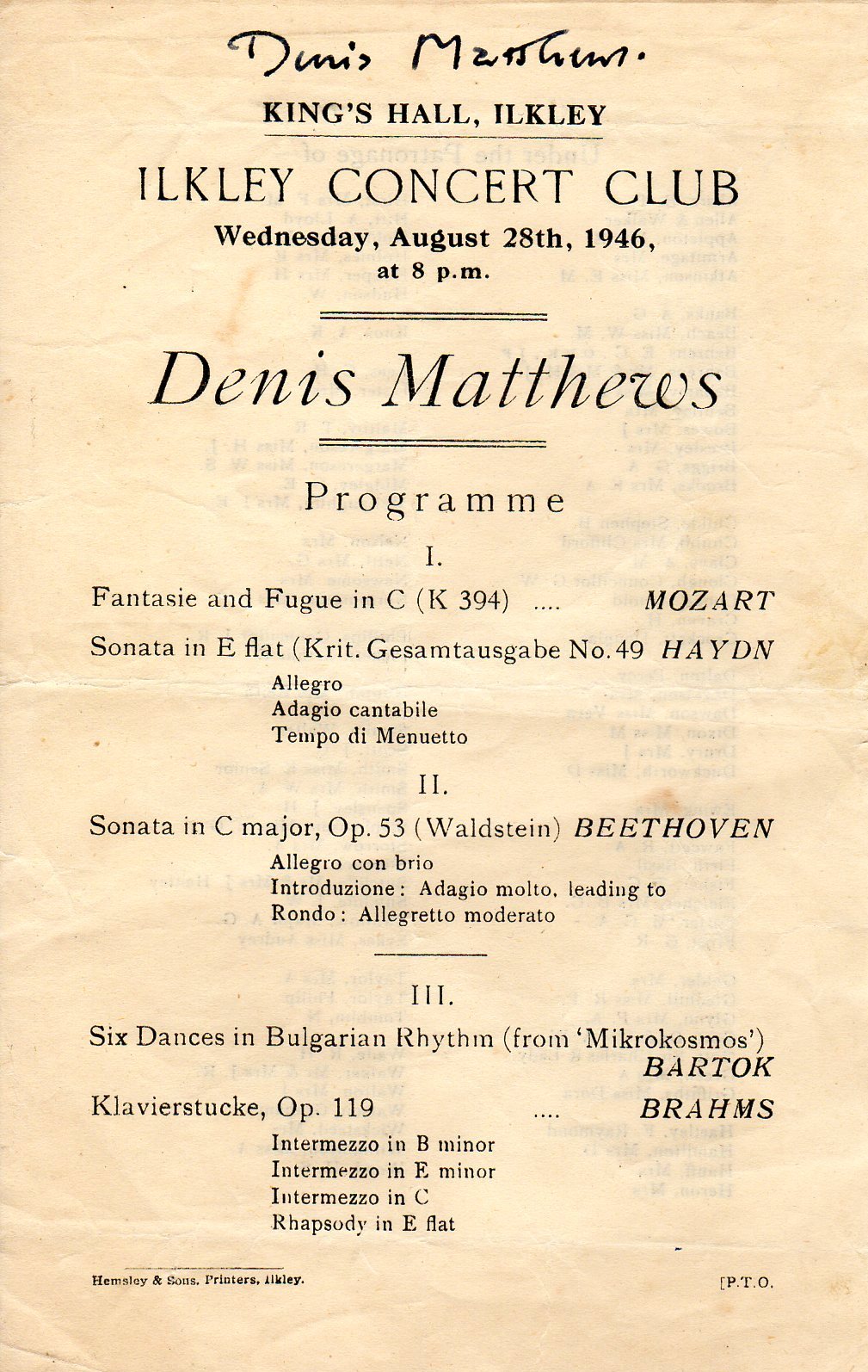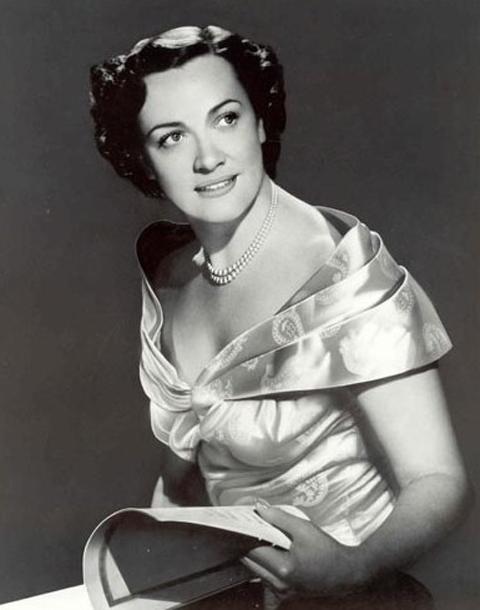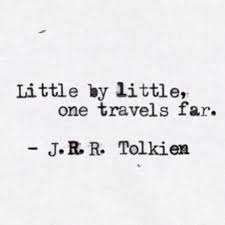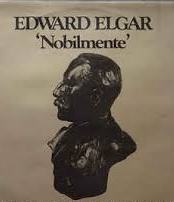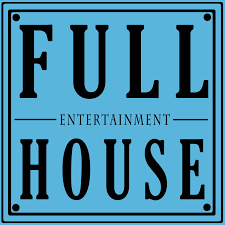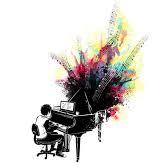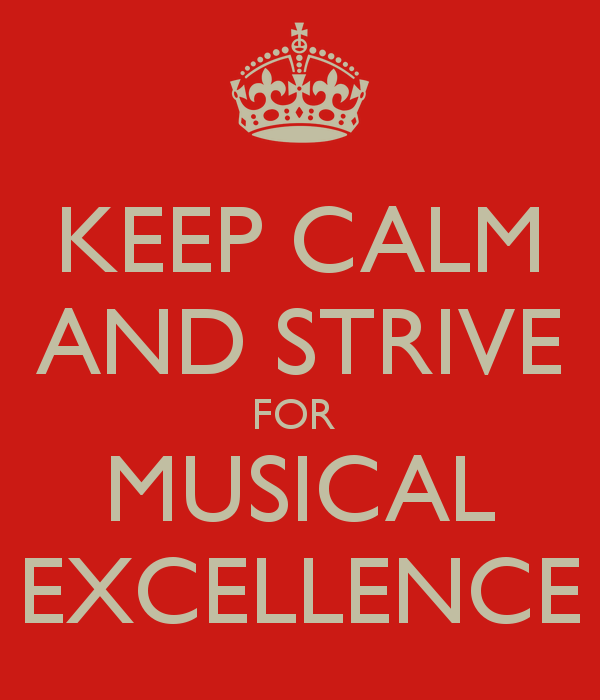HISTORY OF THE ILKLEY CONCERT CLUB
Introduction – Allegro con fuoco (1940’s)
The Club did not just “spring into being”, its beginnings can be traced back to Sunday 8 March 1942 when, as the Ilkley Gazette reported, “Ilkley Players’ Concert Club opening recital by Cyril Smith. . . made a most successful opening of its venture. . . for both his performances (5pm and 8pm) the Playhouse was completely filled”. On finding that his engagement was completely sold out, Cyril Smith offered to simply repeat his whole programme at no extra cost. A remarkable offer, particularly as the programme included the Brahms Variations and Fugue on a theme of Handel and a first half of Chopin with the B minor Scherzo!
Read MoreIn July, the concerts moved to the Winter Garden and as part of a “Holidays at Home” weekend, Isobel Baillie came in September and “enthusiasm was such that the concert room could not, unhappily, accommodate nearly the number of people who sought admission”. The short “Seasons” were of three or five concerts on Sunday evenings, and carried on almost throughout the year. Attendances were very mixed, and in December 1942 the venue changed to the Grove Picture House with some superb artists booked. 3pm was tried, and then 7.45pm, although the latter caused difficulties – when Irene Scharrer came in December 1944, the Chairman J W Sutcliffe told the audience she had had a fall in the blackout but would carry on rather than disappoint the audience! Between September 1943 and December 1944 piano recitals were given by: Solomon(twice), Louis Kentner (he lived in Ilkley for 18 months), Dame Myra Hess, Moura Lympany, Moiseivitsch, Clifford Curzon and Irene Scharrer!
In 1945, the concerts moved back to the Winter Gardens for three concerts in August and September. In all, 31 concerts were promoted by the small, dedicated Committee under the Chairmanship of Mr J W Sutcliffe and the artistic direction of Dr A W Gott.
On 8 April 1946, an open meeting was held in Ilkley Playhouse to determine the future of the recitals. Whilst artistically they had been a success, there had been a considerable loss of nearly £90 over the 31 concerts. After much discussion, it was agreed to form a new society – Ilkley Concert Club. A Committee was elected with a brief to move, if possible, to the Kings Hall and to change the day from Sunday in an attempt to obtain a minimum of 150 subscribers. A season of concerts was proposed and leaflets distributed asking for Patrons to create a Reserve Fund. This was successful, and a listing shows nearly 90 names. Wednesday evenings at 8pm was chosen, and the first recital took place on 28 August 1946.
The Season was artistically a success, but the Committee had to draw on the Reserve Fund, and offered a second series of six concerts between August and December 1947 (bad weather had kept many away in the previous January and February).The six in 1948 included three solo pianists, and in 1949 “increased support” led to a more varied series including two solo pianists and a piano duo (Smith and Sellick).
VIVACE (1950’s)
This was a period of changing fortunes. The Club had very little financial backing, and the success of each season was crucial. However, this did not stop the Committee starting new initiatives. In October 1950, Gerald Moore gave the first of a number of Schools Concerts on the Wednesday afternoon of an evening engagement accompanying a soprano and cellist. There were, according to the Ilkley Gazette, 500 children present. Gerald Moore said, characteristically, that he did not always get 50% of the joint fee. “Sometimes I get more – but not often”! This was the period of the “unashamed accompanist”, even though he was still billed as “at the piano”.
Read MoreRoland Wade, who joined the Committee in 1946, writes: “There were, of course, crises – but they were few. In one of the early seasons, Clifford Curzon had been engaged for one of the concerts but said that he would not have time to work up the programme to his satisfaction. The Club had to choose another pianist, but not one of quite the same standing. At the start of the next season, Curzon said that he had seen that the Club was having the Amadeus Quartet and, as he was playing quintets with them in London, he would join them on payment of his expenses only. He wished to make amends for not having been able to come the previous year. The Club accepted his offer, which enabled it to have a quintet recital which at normal fees would have been beyond the resources of the Club. ”
Kathleen Ferrier came again in 1951 and said of Ilkley, “such a delightful and well-behaved audience”. The AGM in January 1951 in the Blue Bird Café showed a net “profit” on the season of less than £1 (loss on ticket sales £36, Patrons’ Donations £37). In 1952 there was a “surge of interest” and increased bookings so that by April 1953 a “profit” of £54 was reported.
However, in 1953/54 a miscalculation of audience interest led to “Too many empty seats for String Quartet”, generally poor attendances and a loss of £100 on the season.
Segovia came at this time, and then Chairman, Roland Wade, writes: “Before the recital a number of friends went to see him in the greenroom, boxed off area under the stage. I stayed on because I had somehow acquired the job of showing performers on to the platform. Segovia did a bit of tuning and then played some bars of one of the pieces he was going to play. The acoustics were perfect, much better than in the too large hall. I have never forgotten this little private recital by Segovia.”
This was quite a critical period, and a questionnaire to the audience revealed that out of 198 returns, 83 preferred pianists, 55 vocalists, 17 ensembles, and 15 violinists. Season Tickets had declined, and the average attendance over the six concerts was 264. Season Tickets were increased for the first time from 25/- to30/-, and the seasonal pattern changed to four concerts before Christmas and two after. The following year, another audience “ballot” produced requests for 1. Pianists; 2.Chamber Ensembles (moved up one place!); 3. Singers. . . and a lonely cry for “a cello”; profit £65.
The arrival of a newly purchased piano gave a great impetus to the next season, particularly as the Kings Hall was newly painted and reseated. Coffee was served in the Annexe. Appeals for donations were made, and Bring and Buy sales were held in members’ homes.
At this time concerts worth noting included the first of the “Intimate Opera” and “Opera for All” evenings -always much enjoyed; Anthony Hopkins gave the Schools Afternoon concert; Jeremy Gott sharing recitals with Leon Goosens and Gaspar Cassado; and a “young quartet” (the Amadeus) played Bartok. These changes seemed to give the Club a new standing and 1957/58 shows “all records broken”, with over 80 patrons and 350 season ticket holders.
In 1959, the Club promoted an extra seventh concert. This surely must be the best concert we never had! Roland Wade (Chairman at that time) remembers: “In 1959 the Club was one of three Concert Clubs in the country to be “offered” a concert by Dmitri Shostakovich and the Beethoven Quartet, as part of a visit to this country. There was considerable excitement as the main work was to have been his Piano Quintet, then less than 20 years old. Shortly before the date, Shostakovich was taken ill, and the whole visit had to be cancelled. An alternative had to be found, and we were fortunate that Rosalyn Tureck, well-known for her Bach, was available for the date in question, and was engaged.”
At the AGM in May 1959 it was reported that when the Hall was full for a pianist, the Club seated an additional 80-100 on the stage behind the piano. The highest ever attendance was 613 present for Gina Bachauer, and the average for the season was 534. With changed seating and current Fire Regulations the capacity of the Hall in 1996 was 476!
Allegretto – rall. poco a poco – dim e doloroso (1960’s)
The 1959/60 and 1960/61 seasons continued the increased support and reached a season ticket sale of 393 subscribers – the highest ever.
March 1960 saw an additional “seventh” concert which raised £200 for the Ilkley Refugee Appeal Fund. This was given by Elizabeth Harwood(soprano), Rodney Friend (violin) and Jeremy Gott (piano). September 1960 saw perhaps the longest recital the Club has had. Fou Tstong changed the advertised programme and played four lengthy sonatas by Beethoven, Schubert, Mozart and Chopin. It was certainly 10.30pm before he finished, and then there were two encores!
Read MoreAlways on the look-out for something out of the ordinary, the Committee booked the Domenico Ensemble for an evening of music and dance, as a change from touring opera. There were three dancers, three viola d’amore and a modern cello (the latter particularly upset “CWB”, the reviewer in the Gazette). Desmond Dupre should have been with them playing the lute and guitar, but was poorly. There were “very many empty seats” and not enough information was given to enable a full understanding of the presentation.
1965 had a very different extra “concert”. The opera was Don Giovanni, the cast was quite superb, the Vienna Philharmonic was conducted by Furtwangler, the venue was the Essoldo Cinema, and the film was in colour! In the first half of the decade all seemed to go well – concerts were memorable and season ticket sales, always the barometer for ensuring the success of a season, were between 343 and 393.
1965 was also “memorable” for non-musical reasons. John Shirley Quirk caused the large headline in the Ilkley Gazette, “SINGER STOPS RECITAL TO COMPLAIN”. The concert was in January but “excessive coughing and chattering(!) was distracting”. In the Gazette, CWB thought more artists should have the courage to complain, particularly as the singer’s comments were applauded. Some members may recall that the two ladies sitting near to the front “chattering” took some time to realize why he had stopped singing! This was a little like the occasion Barbirolli stopped an overture to turn round and watch latecomers finding their seats in the middle of a row. On that occasion, words were superfluous.
In November 1967 a recital by Jean-Rodolphe Kars saw the start of the ongoing relationship with the Leeds International Piano Competition. At about the same time more detailed programme notes became a feature, doubling its size.
Although nearly every season still included a “vocal”, solo singers started to give way to groups or in mixed programmes with instrumentalists. Attendance generally declined until in 1968/69 there were only 301 season ticket holders and a financial loss of £154 (Artists’ fees – £676). 1969/70 continued this downward trend and there was much ensuing discussion, particularly after the Committee had taken a gamble with increased artists’ fees of £820.
Lento – Moderato – stringendo e cresc. (1970’s)
There was a depressing start to this decade, but it also saw great changes.1970/71 showed that even though artists’ fees were trimmed down by nearly £300 to £530, season tickets were down to about their lowest at 249 and a loss of £30 was recorded. The Gazette noted from the AGM that there were “Financial Problems”. The Treasurer read a strongly worded statement saying the “Club has very little to congratulate itself about this year”. A circular showing the crucial need for more members was prepared by the Chairman and sent out with the next season’s brochure. The style of advertising was still very genteel: “We invite you to glance through the coming season with which we hope to attract your attendance”! For 1971/72, artists’ fees were increased by £130, showing considerable courage, and the situation was redeemed. Season tickets went up by 45% to 362, and patrons ‘donations by 60%. It is worth recording that the incomparable David Munrow (Early Music Consort of London) came with Christopher Hogwood and James Bowman, and The Lindsay Quartet were “one of the youngest chamber groups before the public today”.
Read More1972/73 saw season tickets down to 336 and musically it was notable for the visit by the Kings Singers, “Six young men who have now formed a singing group of exceptional artistry, exuberance and flexibility”, and who today would deny the truth of that “sales pitch” in the brochure!
1973/74 was a very difficult season; of the six concerts advertised, two had to be changed. First Eileen Croxford (cellist) had “a bad finger” and the Music Group of London Piano Quintet became a violin/piano duo. Georgina Dobree (clarinet) was booked to appear with the Fitzwilliam Quartet, but on the day the leader was “stricken seriously ill”, and the clarinettist, already in Ilkley, offered a recital if an accompanist could be found. By 6pm piano and artists were together, and an attractive programme quickly devised.
1977/78 saw yet more changes. Concerts were promoted in association with Bradford MDC and Yorkshire Arts Association. The presentation of brochures and programmes was altered, and fees increased by £400. “Seasons” increased by 45, and an extra concert was given free to subscribers after the AGM, promoted jointly by the new “Friends of Opera North”, YAA and the Club. Given by Sandra Dugdale (soprano) and Keith Swallow, this was a great success.
Allegretto – stretto e cresc. a fff -Nobilmente (1980’s)
1980/81 saw more changes. The concerts were advertised as six for the price of four. Overall attendance figures were good (78%), artists’ fees over £3,000 and with skilful balancing, including grants and sponsorship, a profit was recorded of £314. Nevertheless, the season ticket sale was a miserable 259 – down by 46. Some considered this the pattern for the future, but a new Yorkshire Arts Music Officer came to visit the Committee to discuss arts promotion, and the work of an American, Danny Newman, who had written a book called Subscribe Now. He brought colourful and brash American advertising for us to look at, and a financial award to help clubs updating their publicity. This proved to be the “watershed”.
Read MoreThe Committee was certain the artists were popular and the music well chosen, all they needed was for concert goers to “Subscribe Now”! Many hours were spent on this problem, a print designer appointed, and 6,000 two-colour brochures with photos of the artists were produced. With up-to-date strong visual impact, the brochures were what the Chairman reported as “a very good series of artists playing attractive programmes, brought to the public’s attention in a thoroughly professional and attractive manner”. These were distributed by hand, by bicycle and by car, and whole estates were targeted.
Dacre Son & Hartley sponsored Marisa Robles who, although she played the harp beautifully, talked a lot to the first few rows! The rest of the season was also an artistic success. At the 1982 AGM, the Treasurer reported season tickets had increased by 50% to 389 – “This is a resounding success of the Club, at a time when many of us are reeling from the effects of the depression.”
The Club budgeted 20% more for artists’ fees and the Chairman set a target of 400 season tickets for 1982/83.There were some superb concerts: Leeds’ first prize winner, Ian Hobson, opened the season; Ian Partridge sang Beethoven’s” An Die Feme Geliebte” – this performance being heard by what was becoming known as “one of the best audiences in the country”. A rarity was Gounod’s “Petite Symphonie for Wind”, played by the Northern Sinfonia Ensemble. The Treasurer reported the Club had exceeded expectations with 447 season tickets, and a surplus of £714. “Subscribe Now” was certainly working, so artists’ fees went up 40% to over £5,000, and in season number 38 (1983/84) the Club finally reached “House Full”., and a surplus on the year of £121. The brochure had followed the style set previously, and was in three colours – bright yellow, bright blue and black! It can be noted that between 1959 and 1970 fees went up £30, and between 1970 and 1983 by over £4,600. Peter Donohoe played Gaspard de la Nuit by Ravel to this first sell-out audience, and another worth remembering was the magnificent Schubert C major Quintet played by the Fitzwilliam and Moray Welsh.
The problem facing the Committee was – what next? A bit like defending a championship, maintaining a success seemed even more difficult than achieving it, so the 1985 AGM looked at national trends and noted that Ilkley was eighth in the country for membership size. Also noted was “the newly refurbished and redecorated Hall”. The 1986 brochures said “SOLD OUT AGAIN!” and included two groups playing in the 1996/97 season – the Israel Piano Trio and the Northern Sinfonia Ensemble. Sponsorship by Bradford & District Newspapers allowed us to book Ruggiero Ricci, a legend in his lifetime, and the way he played the Paganini 24th Caprice made it sound quite easy! Also noteworthy was a lovely concert by Jonathan Plowright (a lovely Schumann “Carnival”). This was the first of the Countess of Munster Musical Trust Young Artists’ concerts.
During the whole of the past 50 seasons, only one concert was ‘cancelled’. On 14 January 1987 the Alberni String Quartet were giving a lunch time concert in Manchester. The weather became simply appalling and motorists were asked not to travel. Although the Quartet said they were willing to try and cross to Ilkley on the M62, enquiries to Manchester Weather Centre led us to tell them to stay put and we would postpone the evening recital. In thick snow a notice was hung on the closed gates of the Kings Hall, and the concert finally took place the following April. Success continued, and in 1988 the AGM recital was advertised as a formal part of the season. This made the “extra” an eighth concert – and surely one of the most remarkable evenings the Club has been associated with: “An Evening with Queen Victoria”, acted by Prunella Scales, with music performed by Ian Partridge (tenor) and Richard Burnett (piano).
The mid to late 80’s saw a period with a very close relationship with Bradford Metropolitan Music Promotions. 1989/90 brought both upsets and treasured memories. Joshua Bell (violin) was advertised to appear with Roger Vignoles accompanying him, but at a late stage Bell insisted on changing the entire programme due to pressure of other engagements. This was unacceptable to the Committee, and the violinist’s contract was cancelled. Gyorgy Pauk agreed to return to this country immediately after a performance in America, and give the two main works already advertised. About 36 hours before the concert Roger Vignoles was taken ill, and after discussing the problem with Gyorgy Pauk in America, he agreed to play if we could book Ian Brown. This proved possible and they gave a very fine performance. The Gaudier Ensemble played the Schubert Octet (who will forget that wonderful evening?). The “extra” was almost certainly the Club’s worst misjudgement – London Operetta in “Opera Lights” (who will forget that evening!).
Moderato e maestoso (1990’s)
The 1989/90 season was, other than the concert already mentioned, an artistic and financial success – converting a loss in the previous year of £522 to a surplus of £1,468! Sponsorship was very important and all eight of the concerts had received help, including three supported by Bradford Metropolitan Music Promotions.
The following year the “extra” was a rare June concert by James Campbell and the Allegri Quartet – a lovely performance. Programmes changed to their current format; although artistically attractive, brown print on cream paper made them difficult to read!
Read More1991/92 saw the introduction of our logo – a string quartet drawing – and this was featured on the front cover of a more restrained brochure. From a wealth of talent it is difficult to single out any performance, excepting for the remarkable evening when Imogen Cooper played the Brahms Quintet with the Endellion Quartet. This was made possible because the artists were performing the work in London, and the pianist had expressed a desire to join them in Ilkley (at a “special fee”). The then Honorary Secretary, Jean Stark, called this “one of the finest concerts in the Club’s long life” and who would argue with that? (It is interesting to recall the comments made about the Curzon/Amadeus concert in 1950.)
The following season saw, after a long absence, the return of a full Lieder recital, when Adrian Thompson sang Schubert’s Die Schone Mullerin. Although to programme this had caused long discussion in the Committee, the evening was a great success. Artists’ fees were now £11,819, and the surplus a healthy £1,456.
1993/94 had a much reduced surplus of £231, an expensive series and one concert that was again remarkable. The Chairman reported “Perhaps because 13 April was the last public performance of the Solomon Trio they felt it was a ‘special occasion’. I asked a member of the Trio if I might mention this to the audience before the concert. He felt not because, he said “they might expect something special”! The excitement of the Gypsy Rondo encore will surely always remain with everyone who was present.
1994/95 brought first visits by both Nikolai Demidenko and Tasmin Little. The Club heard Szymanowski and Webern played by the Carmina Quartet, and the first piano duo for many years (Mr and Mrs Goldstone) helped set a standard so high that arranging the following seasons was becoming a real worry, as was increased cost and falling sponsorship. There was, nevertheless, a full house again, a surplus of £668 and musical memories to cherish.
1995/96’s highlights will vary, of course, for members, but two rarities much appreciated were the Messiaen Quartet for the End of Time and the visit by the Britten Singers (on previous occasions in 1965 and 1968 they were known as the BBC Northern Singers). This was the 13th season that the Club was fully booked by subscribers. Patrons’ donations totaled over £1,200 which easily exceeded the final surplus of £752, after a reduced number of sponsors and £400 less in Annual Grant Aid from the National Federation of Music Societies using Yorkshire and Humberside Arts funding.
With assets satisfactory at £10,000 the committee took the decision to celebrate in 1996/97 with a very expensive season featuring some of the finest artists who had played in previous years. The hall was full and the deficit was expected to be substantial, although at the next AGM this was shown to be £524, much less than expected, even though artists’ fees and expenses for this “exceptional season” had risen by £4,500! Those of us who were privileged to hear the Nash Ensemble will always remember the quite wonderful Schubert “Trout” quintet, containing one of Christopher van Kampen’s last performances before dying of cancer some four months later. This, as David Denton said in the Yorkshire Post review, “transcended simple technical perfection”.
In the 97/98 season we published the results of a questionnaire from which the highest percentages voting “yes” were 74% for a mixture of Music and Artists being the main consideration and 55% considering Music being the more important of the two. 98/99 saw one of our (fortunately) very rare cancellations. The cellist of the Swedish quartet “Yggdrasil” fainted just before being due to travel to Ilkley and the local Doctor refused to allow him to fly. At about 24 hours’ notice the Schidlof Quartet, who were “Quartet in Residence” in Sheffield, gave an excellent performance of Haydn, Shostakovich and Beethoven.
Con Spirito e con amore (2000’s)
A 1999/2000 committee noted we were “just fully booked again” with a very healthy balance sheet having risen from the previous year to show net assets of £15,397. As a result 2000/01 had no rise in ticket prices (and a French flavour with Pascal Roge and Phillipe Graffin). This season was particularly noteworthy for a superb performance of the Bartok Sonata for two pianos and percussion with Ben Frith, Peter Hill, and the percussionists Julian Warburton and Simon Limbrick placed on the front of the stage above the two pianos on the platform. This was an evening full of surprises, one such being Steve Reich’s piece “Clapping” proving an amazing experience for an enthusiastic audience.
Read MoreOne concert in 01/02 will surely remain indelibly in the memory of all who attended the truly wonderful performance by Angela Hewitt of the Bach “Goldberg” Variations. For the writer this was one of the greatest performances of any season, summed up by the Ilkley Gazette Sub-Editor in his review heading “Tumultuous applause and tears at unforgettable night”. The 02/03 season had the committee recording artists’ fees and expenses at £15,500, and for the last concert in 03/04 the Ilkley Gazette noted, “Memorable end to season has the audience stamping in the aisles”!
By 04/05 about 60 season ticket applications were unable to be dealt with and artists’ fees and expenses had risen to £17,499. Including £514 profit on the sale of members’ donated CDs, a surplus on the year of £2,900 was reported. Mention must be made of Jane Irwin’s beautifully sung performance of Mahler’s “Lieder eines Fahrenden Gesellen”. The only other performances of Mahler songs had been in 1955 and 1958, and it will be interesting to find out when we next are able to programme this composer’s lieder!
For the 60th season the committee did their best to provide something ‘special’, and they succeeded! A ‘silvery’ cover brochure announced that the opening concert would be by Alfred Brendel. He brought his own model D Steinway from home accompanied by Steinway’s Senior Concert Technician. It’s a good job he did as it had also travelled elsewhere and arrived in Ilkley with a large screw right through the body and into the action mechanism! After frantic work to put things right there followed a wonderful evening with, for your Chairman, the highlight not the Beethoven ‘Pastoral’ Sonata but the Mozart ‘Duport’ variations which opened the evening. Sheer perfection and never to be forgotten. Alfred Brendel, used to the adulation of a two thousand audience was surprised and even commented “they don’t clap a lot do they”! Was it Ilkley’s ‘reserve’ or simply they couldn’t express their feeling for his visit – from which he probably about ‘broke even’! Although a whole season of exceptional merit, mention must also be made of Roderick Williams’ “Songs of Travel”, Tasmin Little’s evening and the final concert by Alexeev and Demidenko playing the Rachmaninov second Suite and the Symphonic Dances.
Years 1942 – 2006 Written by:
DAVID PYETT
Committee member 1946 –
Chairman 1976 – 2012
President 2012 –
So much of the credit for the success of the Club was due to the diligent and meticulous efforts of David Pyett and his wife Margaret. As its heart and soul they operated through an extensive collection of 5×3 inch index cards, squared paper and sheer hard work, however it was on the limit of manageability. By the time of the 06/07 season much of the administration of the Club had been transferred to an IT solution designed by David Wharmby, who joined the committee in 2005 as IT Co-ordinator. After manually entering all the data, the Club had a system that not only revolutionised maintaining the membership data but automated chores such as printing envelope labels. At the same time Tony Hudson, another Committee member, who runs the CD stall, put together the Concerts Database, which details every single concert, artist and piece performed throughout the Club’s history.
Season 06/07 will be well remembered by the Committee for the decisions required to obtain a replacement piano. The existing King’s Hall Steinway was not in great condition and often suffered when it was moved from Ilkley to Bradford Cathedral. Matters came to a head, when it was dropped on the road outside the King’s Hall and declared a ‘write off’. The club entered negotiations with Bradford Council that led to a decision which would provide for a permanent piano at the King’s Hall and a refurbished twin to be kept at the Cathedral. David Pyett along with Mark Davies at Bingley Arts agreed to buy a new Steinway Model ‘C’, ebonised, high gloss grand piano for Ilkley. However, there were no Model ‘C’s in London as they were in short supply and it was necessary for someone to go to Hamburg to choose one. The Club was much in debt to Paul Lewis, who went on our behalf to make the choice. Musical highlights included the concert with Julian Bliss (just 17 years old) and the Sacconi Quartet, for which Julian specifically learned the Arthur Bliss (no relation) Clarinet Quintet just for us, and Imogen Cooper’s recital where the Ilkley Gazette noted ‘A wonderful evening’s music-making, a privilege to be there’.
The aforementioned Paul Lewis opened the 07/08 season on the piano he had chosen for us – ‘the piano is one of the best Model ‘C’s I’ve seen …. Perfect I think’ and his performance, noted Geoffrey Kinder, in the Ilkley Gazette ‘had everything going for it and was the finest I’ve experienced in the time I’ve had the privilege of reviewing the series’. In January 2008 David Wharmby was elected vice-Chairman, taking over from Bob Walker. Bob though continued to write his marvellous programme notes, a task he took over from Charles Bainbridge in 1987. The club helped the King’s Hall to celebrate its 100th anniversary, although only 62 years old itself, by putting on an extra concert at the end of the season with pianist Tim Horton.
The decade ended with the club in good health with a waiting list of 50 after the season ticket allocations for 08/09. This season started with a ‘living legend’ of the keyboard, Marc-André Hamelin and ended with a most unusual concert from the Goldberg Ensemble famed for playing ‘modern’ music, but performing Mozart, Strauss and Mendelssohn for us. In the middle there was a wonderful centenary tribute to Messaien with a magical performance of his Quartet for the End of Time by The Gould Piano Trio with Lynsey Marsh on clarinet.
Qualitas potentia nostra (2010’s)
To continue supporting the high-quality programming of each season, we continued to enhance the administration and visibility of the club at the start of the new decade. Tony Hudson ensured the club had a website, our IT infrastructure was enhanced through David Wharmby specifying a ‘user friendly’ Concert Management System (CMS). He took his original database and with the professional help of Andy Walker (WalkIT) created a multi-user web-based solution for both CMS and the Concert Database. The complexity of Ticketing, Membership, Programming and overall organisation of ICC means that the tasks could now be shared more easily amongst the Committee and someone else can deputise if necessary.
Read MoreAs with many organisations the financial crisis of 2008/9, with squeezes on personal credit and increasing costs, put pressure on us. We managed to keep the season ticket prices for 09/10 the same as the previous year, however in 10/11 these were raised by a modest £1.50, and the Club still being able to offer ‘Book a Season Ticket for THREE Free Concerts’. In November 2010 the price for the Programme Notes sold at each concert was raised for the first time since 2001, from £1.00 to £1.50 to cover increased costs.
All season tickets continued to be sold despite the increased prices. We believe it is due to the high-quality artists that we can engage the financial stability of a ‘full house’ and the continuing desire of our local residents for such music , not forgetting the loyalty of Members, many of whom have held Season tickets for more than a decade.
Another change in 2010 was the retirement of our Booking Secretary, Margaret Pyett, after an extraordinary 33 years. Margaret was for many the public face of the Club, organising subscription bookings, sale of returned tickets and the Box Office. Her astonishing memory for little personal details helped make the Club such a friendly place.
Season 09/10 was a musical balance of ‘recognition’ and ‘curiosity’ as David Pyett put it. As well as established artists and ‘traditional’ repertoire we welcomed the David Pyatt Horn Trio (yes different spelling and no relation – but the 1988 BBC Young Musician of the Year when aged 14), playing, amongst other works, Ethel Smyth’s Trio for Violin, Horn and Piano for ‘a memorable evening that left the audience buzzing with pleasure…’. The iconoclastic Red Priest who braved terrible freezing conditions (as did the audience!) to give a thrilling evening of Baroque Music which sent everyone home with smiles on their faces and the Czech Wihan Quartet who brought a new work commissioned for them, Cavatina and Moravian Dance by Roxana Panufnik.
It is not often we have a recital based upon harp chamber music, but in December 2010 the Sally Pryce Harp Ensemble managed to make it from London in a severe snow storm to perform a winter warmer to a much weather-depleted King’s Hall audience. The next concert, the first of 2011, spotlighted the rare talent of Lawrence Power’s viola playing. Viola players have been the butt of unkind jokes since time immemorial, however along with his rare c.1610 viola by Bolognese maker Antonio Brensi and accompanied by Simon Crawford-Phillips his performance, of pieces never heard by the Club. It elicited amidst the final rapturous applause someone saying ‘after that, no more viola jokes’, which says it all, as Geoffrey Kinder commented. There is often much anticipation when a world-renowned quartet are booked, and such was it with the Michelangelo Quartet and their programme of Schubert, Shostakovich and Beethoven. Many leaving the event that night said what a wonderful occasion it had been and the Ilkley Gazette reviewer feared that in reviewing it ‘I’d be lost for superlatives’ letting it slip that it was ‘one of the best concerts ever’. A fabulous 2010/11 season had not quite ended. The final concert was a Piano Duo with Ashley Wass and Martin Roscoe making the most of not only our Model ‘C’ Steinway but, after complex moving arrangements, its twin from Bradford Cathedral. The performance was greeted, deservedly, by stamping and cheering not experienced at an Ilkley Concert Club event for many, many years … ‘Wow!’
In 2011, Bob Walker retired from contributing programme notes. The lengthy and sometimes difficult task of writing the detailed Programme Notes was a very different undertaking without today’s computers and easy access to information, and even performance! It meant many visits to Leeds Lending Library for sheet music and scores and David Pyett recalled that he even received from the inter-library scheme music from Paris to help him deal with a piece we were having! This care and attention to detail led to artists being so impressed that some asked for permission to use our programme notes elsewhere. Bob’s effort lasted for a remarkable 24 seasons – from September 1987 to May 2011 – whilst over the same period he was also responsible for writing the concert critiques for the Ilkley Gazette. Geoffrey Kinder, who had already been doing some concert critiques and programme notes, took over the role.
The 66th season started in October 2011 where the 65th finished…. with a ‘Wow’ concert from pianist Benjamin Grosvenor, playing virtuosic music by Albeniz and Liszt and a remarkable performance of Bach’s Fourth Partita in D major. It is not often that artists write to give thanks, however Robert Plane after playing the last concert in 2011 said ‘Yours really is a very special club, such amazing following and concentrated listeners. Wonderful to see you going from strength to strength. I loved playing with the Dante Quartet and the warm but clear acoustics of the hall suited the Brahms perfectly. A real joy.’ The second half of the season was no less inspiring with Geoffrey Kinder saying of The Doric String Quartet, ‘This was some of the most musically colourful playing I’ve heard from a string quartet.’
In June 2012 David Pyett relinquished the Chair after 36 years of great distinction. Such an event could have caused great concern however, David had taken care to pass on his accumulated knowledge and experience to other committee members. The Club elected him as President and in further recognition of his incomparable contribution to the musical life of Ilkley he was made Life Member of Ilkley Concert Club. David Wharmby was elected as the new Chair.
The 2012/13 season included world renowned artists, Noriko Ogawa, Leeds Piano Competition prize winner, and Sarah Connolly one of the world’s most sought-after mezzos. Programmes ranged in period from Handel and Purcell to a piano quartet composed in 2012 by Huw Watkins and geographically from Japan to local composer Arthur Butterworth. The season ended in May with the Fibonacci Sequence performing Schubert’s Octet, an hour-long serenade-like work which can outstay its welcome but not on this occasion, with all eight players receiving heartfelt applause at the end – a wonderful end to the season.
During 2013 several of the roles performed by David Pyett, were taken on by other Committee Members. Sarah Warnes agreed to take the role of Concert Season Planner with David Pyett and Josephine Wesley, now the Hon Secretary, supporting. Pam Harris agreed to take on the role of Membership Organiser.
CD sales had continued to provide additional income since the start of the stall in 2004, however 2012/13 saw the takings double, with £1,473 contributed to the Club’s funds. This made it clear the substantial efforts Tony Hudson, now the vice-Chair as well, puts into this very popular stall. This level contribution has continued forward.
The 68th Season started with The David Pyett Celebration Concert recognising his remarkable contribution to the club. David’s wish list of music included Aaron Copland’s Appalachian Spring, which requires a large ensemble and the concert was based on this. To finance such a concert the Club needed to raise additional funds above the normal subscription and ‘the response from Members was immediate, extremely generous and enormously heart-warming; it told us a lot about what our Members think of this Jewel in Ilkley’s Crown – and its “Jeweller-in-Chief”’, as David Wharmby wrote in the programme notes.
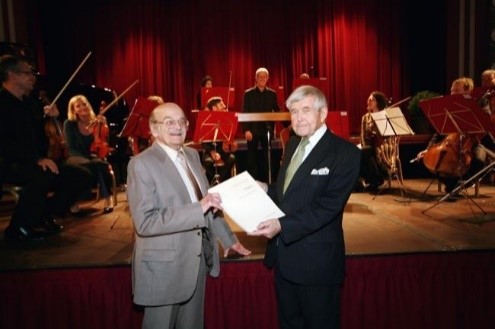 The Club also asked Arthur Butterworth, a friend for over twenty years, to compose a piece for the Celebration Concert. ‘Tarka – Caprice for Chamber Ensemble, opus 142’ was the work that resulted, with a dedication ‘David Pyett’, and using the same instrumentation as Appalachian Spring. Sadly, just before the concert David’s beloved wife Margaret died. Margaret was a pillar of strength for David and a stalwart of the Club, showing personal, thoughtful kindness to members that made her a much-loved friend. Barry Lambert, a Founder Member of the Concert Club and a committee member for more than twenty years, also died just before the concert. In the concert review for the Ilkley Gazette, Geoffrey Kinder wrote, ‘The joint forces of the Manchester Chamber Ensemble and Cuillin Sound played a richly varied programme with evident commitment and enjoyment’ whilst an ‘idiomatic performance under conductor Richard Howarth brought out both the sprightly and the tender aspects of Copland’s Appalachian Spring’ and Butterworth’s Tarka was ‘Beautifully imagined and warmly appreciated by the audience’. A very satisfied composer presented David with a signed copy of the score. Geoffrey Kinder and David Wharmby, who commissioned the composition went to talk to him in Embsay. Born in 1923 and a great raconteur with an amazing memory, Arthur had a facinating fund of stories of his long musical life as a pupil of Vaughan Williams, Conductor and Composer as well as musical politics in the BBC. Tarka, his penultimate composition was written in 2013, the year before he died.
The Club also asked Arthur Butterworth, a friend for over twenty years, to compose a piece for the Celebration Concert. ‘Tarka – Caprice for Chamber Ensemble, opus 142’ was the work that resulted, with a dedication ‘David Pyett’, and using the same instrumentation as Appalachian Spring. Sadly, just before the concert David’s beloved wife Margaret died. Margaret was a pillar of strength for David and a stalwart of the Club, showing personal, thoughtful kindness to members that made her a much-loved friend. Barry Lambert, a Founder Member of the Concert Club and a committee member for more than twenty years, also died just before the concert. In the concert review for the Ilkley Gazette, Geoffrey Kinder wrote, ‘The joint forces of the Manchester Chamber Ensemble and Cuillin Sound played a richly varied programme with evident commitment and enjoyment’ whilst an ‘idiomatic performance under conductor Richard Howarth brought out both the sprightly and the tender aspects of Copland’s Appalachian Spring’ and Butterworth’s Tarka was ‘Beautifully imagined and warmly appreciated by the audience’. A very satisfied composer presented David with a signed copy of the score. Geoffrey Kinder and David Wharmby, who commissioned the composition went to talk to him in Embsay. Born in 1923 and a great raconteur with an amazing memory, Arthur had a facinating fund of stories of his long musical life as a pupil of Vaughan Williams, Conductor and Composer as well as musical politics in the BBC. Tarka, his penultimate composition was written in 2013, the year before he died.
The remainder of the season included many highlights. The Escher String Quartet, a young group from America, brought the audience to tears with their performance of Britten’s Third Quartet; there was a life enhancing celebration of bohemian music from The Frith Piano Quartet and rarely-heard foot stamping accompanying the applause for Jack Liebeck (violin) and Simon Crawford-Phillips (piano). However, the last concert of the season brought the first standing ovation in 68 years. John Lill, who was concerned that his programme might be too much on the heavy side, wowed the audience with amazing finger work, clarity, contrast and in the 20-minute slow movement of the Hammerklavier held them spellbound. Geoffrey Kinder said. ‘I’ve rarely experienced such stillness and concentration in a concert hall. What a privilege and a joy for us to be there.’
After four years of stable pricing subscription increases for 2014/15 were applied to account for increasing costs with the single ticket prices adjusted to maintain the ‘eight for the price of five’ ratio. Members were not deterred by this and again we had a full house. December 2014 brought one of the world’s best pianists, Jean-Efflam Bavouzet with a non-standard programme of nineteenth to twenty-first century music that revealed, even more than his astounding technical facility, the range of colours that he was able to produce from what might seem to be a monochrome instrument. The Club always aims to balance familiar and new music and in March 2015 the Trio Apaches brought a ‘brave’ programme with a newly commissioned Sally Beamish arrangement of Debussy’s ‘La Mer’ and Frank Bridge’s Piano Trio no. 2 in the first half followed by a performance of Shostakovich’s Second Trio that, was greeted with profound silence before the applause could begin.
Season 70 was advertised as offering a few more rarely heard sounds, such as four hands at one piano with Pascal and Ami Rogé receiving a tumultuous ovation, the guitar of Craig Ogden accompanying the Carducci Quartet and the cimbalom, so evocative of central Eastern Europe, in a wonderfully unique kind of folk evening ending with Chris Bradley staying on afterwards to give a much-appreciated ‘close encounter’ demonstration. We also enjoyed two returning artists, with the Brodsky String Quartet returning after 18 years and a season ending concert from Angela Hewitt 14 years after her last performance for the Club.
The end of the season brought some committee changes. Bob Ryan, after 12 years, announced he had decided the time had come to resign as Treasurer. The committee thanked Bob for his wise counsel and his many years of carefully nurture of the Club’s accounts. We also said goodbye to Geoffrey Kinder, who was moving south to be near his family. Geoffrey had for five years provided the exceptionally well written and well-informed Programme Notes as well as for many years writing the reviews for the Ilkley Gazette. Don Williams was welcomed as the new Treasurer, Clive Lane took on the role of writing the Programme Notes and Chris Skidmore our concert reviews. Robert Templar agreed to stand as vice-Chair.
2016/17 saw the return after 34 years of the Coull String Quartet as they celebrated their 40 years of playing together: this may well be the longest gap between Club performances. The season also included two past finalists from the Leeds International Piano Competition (with which the Club has over the years had strong links), Alessandro Taverna and Katya Apekisheva, who accompanied Philip Dukes on viola, himself substituting for an indisposed Maxim Vengerov. The season’s final concert is usually something special or different and this time it was the Aurora Ensemble expanded with friends to play Gounod’s Petite Symphonie, a rare treat.
The start of the 72nd Season was unusual, as for the first time in 35 years the season tickets did not sell out by the application deadline, however once we made it known there were still tickets available they were snapped up, so the Full House sign was posted again. The club has a reputation locally as being difficult to get into, however although there is a significant loyal membership there have usually been between 5 and 10% of new members welcomed every year for the last decade. Another unusual event is a change of artist at short notice. Unfortunately, 5 days before the December 2017 concert the scheduled mezzo-soprano cancelled because of illness. Julius Drake the accompanist helped find a replacement, Fleur Barron, and with remarkable speed a new programme was published including words and the Club was given a gem of a concert from ‘a remarkable singing actress with a beautiful mezzo-soprano voice, light and not too reverberant at the top of the range but with that ample darkness and warmth at the bottom that marks out a fine mezzo’ as Chris Skidmore reflected in the Ilkley Gazette review. Now one hopes that lightning does not strike twice but the January 2018 concert had to be cancelled due to an illness, which was at such short notice that even the best efforts could not find a replacement artist – only the second concert ever cancelled in 72 years and for the first-time refunds were offered to members. The season ended with an amazing experience when Trio Apaches were joined by three percussionists (O Duo plus Jonny Draper). Their programme concluded with a performance of the trio and percussion arrangement of Shostakovich’s final symphony: a concert many members said they would not forget for many a year.
David Wharmby announced during 2018 his intention to retire as Chair after 7 years. Having taken on the unenviable task of taking over the reins from David Pyett, David had successfully maintained the high standards in all aspects of running the Club and in particular presenting superb concerts at remarkable value. Josephine Wesley also announced her retirement as Honorary Secretary. Over the years David and Josephine, had assumed many of the ad hoc activities that David Pyett had undertaken, much of it often unseen and supported by a whole host of volunteers. The Club, over the years, has been privileged to have a capable and committed committee, however its success has depended on many volunteers, selling programmes, serving teas and coffees, hosting artists, selling tickets, running the CD stall, distributing brochures etc. and Josephine had co-ordinated much of this in recent years.
Chris Skidmore was appointed Chair, with Robert Templar continuing as vice-Chair, and David Halpin, a new committee member, as Honorary Secretary.
Years 2007 –
Compiled from Minutes, Brochures, Programme Notes and Reviews by:
ROBERT TEMPLAR
Committee Member 2015 –
Vice-Chair 2016 –

